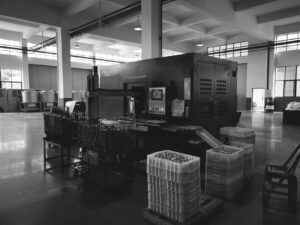

QUALITY CONTROL AND GOODS INSPECTIONS
Our quality control “Inspections” services are divided into 3 intervention methods.
A)-Passive, B-reflective, C-active.
The methodologies are defined with the application of interventions, agreed with the customer but from substantially different aspects.
Definitions of interventions.


PASSIVE
The customer provides technical data sheets relating to the products to be inspected, checks are carried out and related reports are issued. Inspections usually include part or all of the lists described here:
1- Control of production, raw material, and components
2 Control during production, on production lines
3- Pre-shipment inspection, goods packed in stock
4- Container load control, quantity, and quality of cargo
5- Monitoring of production, and collection of inspection data of supplier personnel.
B)- REFLECTIVE
The customer provides technical data sheets and reports of the problems encountered previously, checks are carried out on the supplier’s production line, (previous list from 1 to 5) are reflected to the customer who asks the supplier to intervene with necessary adjustments.
Definitions of interventions.

Pictures represent delivered standard, not shining samples

C)- ACTIVE
With the customer, we evaluate the elements that make up the characteristics of the product to be examined. From raw materials to certifications, technical and construction features including production methods and control systems in use or known by the customer. We intervene to establish 100% inspections in several production phases, from the raw material to the executive tolerances. The state of the art in use at the supplier is reported to the customer and consequently, we work in concert with the supplier to adapt the existing condition and lead the same to modify the production, controls, and reporting to eliminate any risks of defective processes.
Which intervention suits the customer’s needs?
If the supplier has always delivered good quality results, the Passive action in one or more internal variants is sufficient to guarantee the customer protection from gross defects.
The second operating method, Reflective, is more suitable for products in which the company has sufficient confidence in the supplier but prefers to be aware of the operating conditions and be able to interfere with the supplier in order to improve the less performing aspects.
The Active intervention option guarantees long-term operational peace of mind. Quality levels are obtained, often better than those obtained at headquarters.
The application of multiple control points implies imperceptible costs on large volumes, and when the entire production line of the supplier is adapted to the methodologies of our competence, often corresponding to those in use at the customer, results can be guaranteed, with improved and stabilized qualitative performance of the customer’s suppliers.
.




